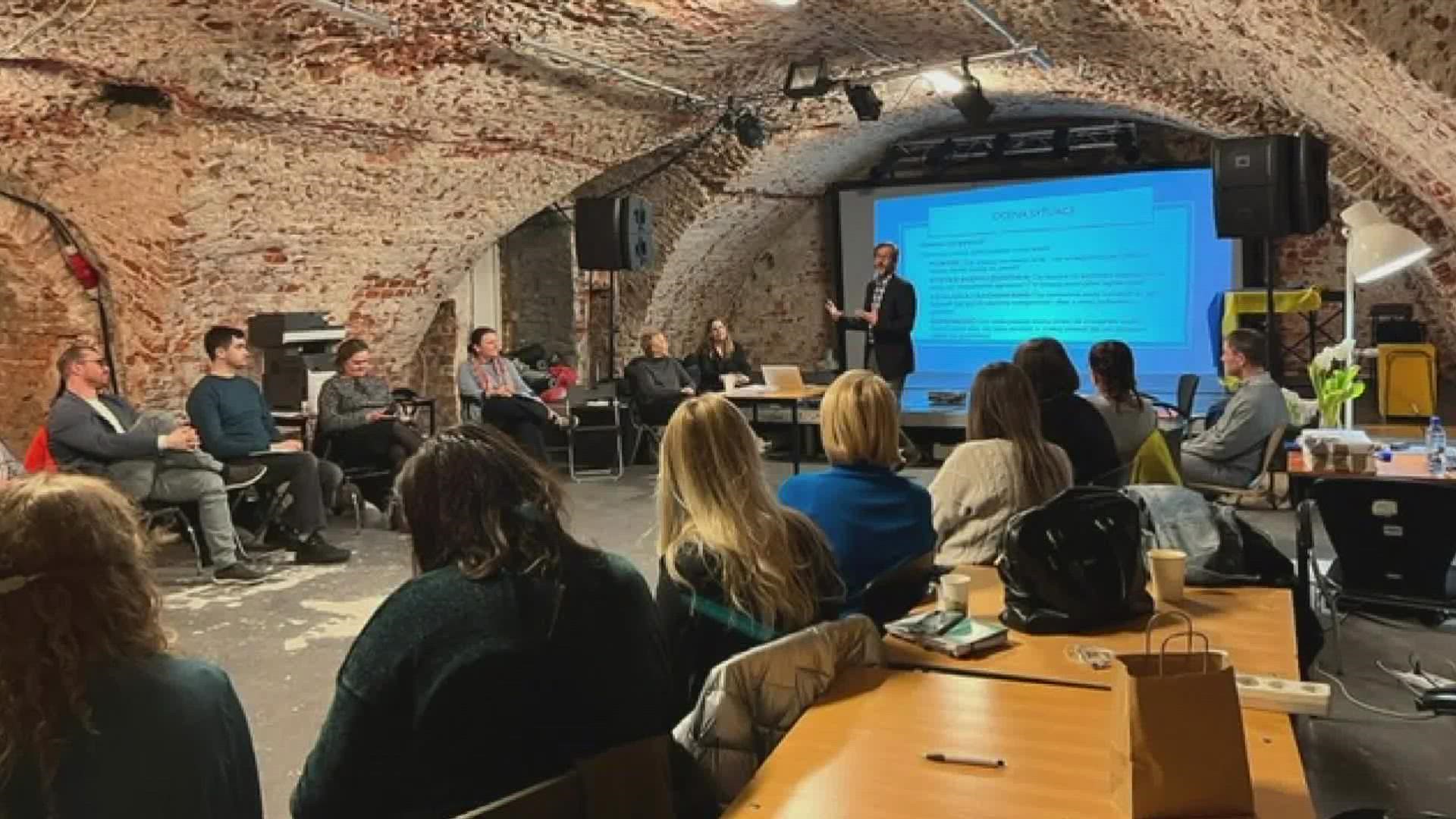SEATTLE — A team of mental health workers from Seattle are helping Ukrainian refugees heal from the unseen wounds of war.
The team has worked near the Ukrainian border in Poland for the past week, helping those fleeing war-torn Ukraine as Russia's invasion continues.
The vast majority of those fleeing right now are children - approximately 70,000 every day. Almost all of them are carrying a heavy burden.
"We're seeing various levels of exposure to pretty horrific trauma," said team member Dr. Kira Mauseth, a psychiatrist at Seattle University.
University of Washington School of Medicine's Eric Bruns recalled the story of a mother who was so fearful she didn't believe she had arrived at a refugee center.
"Because she had been ferried across the border by a well-meaning person who did not speak Ukrainian, she had no idea where they were going," Bruns said. "She saw the barbed wire on top of a fence and she jumped out of the van with her children fearing it might be something like a concentration camp. That's even though the inside was a very welcoming place with very caring people."
The team spent time inside a 17th Century monastery training volunteers who will teach mothers and children skills about how to deal with stress and trauma. They're working with the Polish equivalent of the Red Cross, helping children process their feelings.
Drawings from the children read, "Ukraine is my homeland," and, "I came with my mom and 2 sisters. My dad is in Ukraine."
Most of the children don't speak Polish, so communicating with teachers and aid workers is difficult and frustrating.
The stress is taking a toll.
"Many of the children would spend a long part of the day simply with their heads on their desks," Bruns said.
While many will likely face ongoing mental health issues because of the war, research proves most will be OK, and even emerge stronger, more resilient, according to the team.
"Resilience is the most common outcome for any sort of adversity like this, even a war. We suspect and would like to believe that will be the case here, as well," Mauseth said.
As far as what we can do here at home, Mauseth said it's easy.
"It's hug your kids. Pay attention to compassion and look for opportunities to help other people. That is something all of us can do."
The team plans to return to Seattle next Monday after training about 400 people to continue to care for the flood of refugees.

